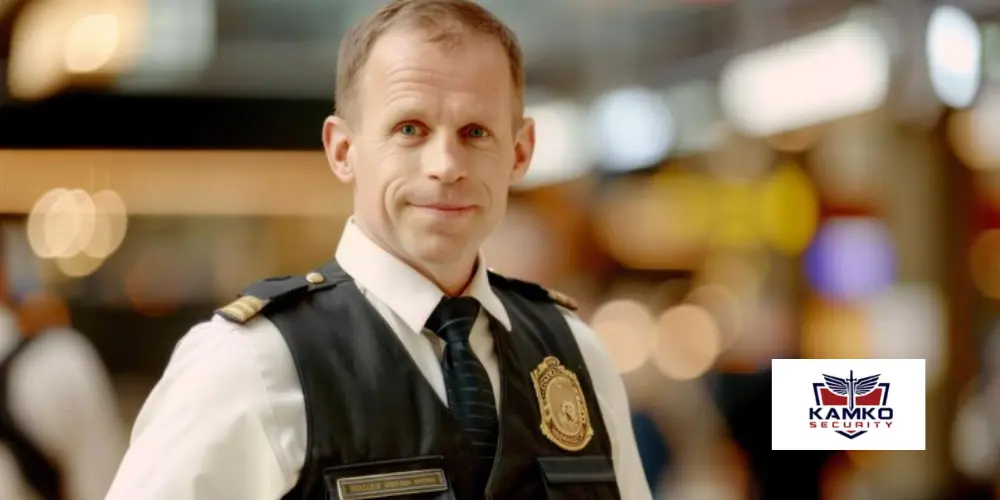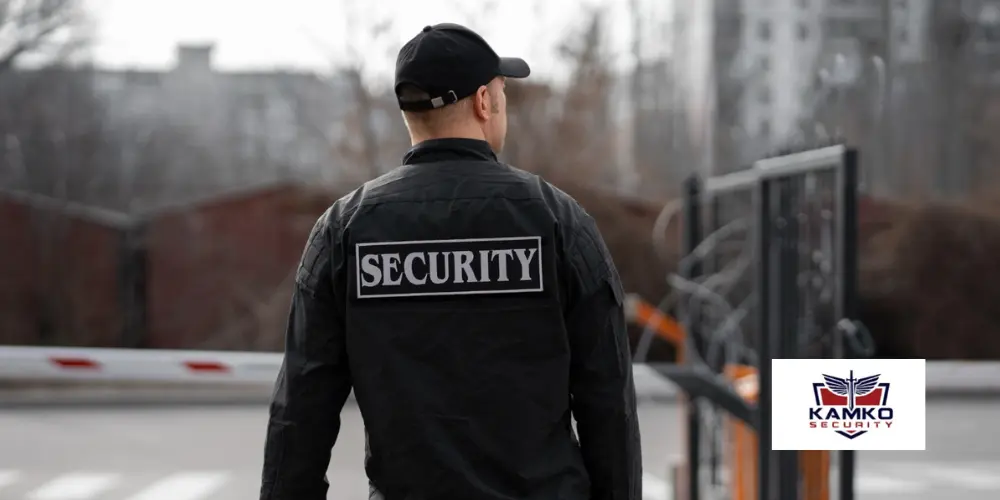What are the Responsibilities of Event Security Guards?
In today’s dynamic and fast-paced world, organising an event requires meticulous planning and attention to detail. One of the most crucial aspects of event planning is ensuring the safety and security of all attendees. This is where professional security services come into play. At Kamko Security Services, we specialise in providing top-tier event security guards who are trained to handle a wide range of scenarios, ensuring a seamless and secure experience for all.
Introduction to Event Security
Event security is not merely about having a visible security presence; it involves a comprehensive approach to risk management and incident prevention. The primary responsibility of event security guards is to protect people, property, and information. This includes safeguarding against potential threats such as theft, vandalism, terrorism, and crowd control issues. Our team at Kamko Security Services is well-equipped to handle these responsibilities with precision and professionalism.
Key Responsibilities of Event Security Guards
1. Risk Assessment and Planning
Before the event even begins, security guards are involved in the planning phase. This includes conducting thorough risk assessments to identify potential threats and vulnerabilities. They work closely with event organisers to develop a security plan that addresses these risks. This plan typically includes emergency response protocols, evacuation procedures, and coordination with local law enforcement and emergency services.
2. Access Control
One of the most visible duties of event security guards is managing access control. This involves checking tickets, IDs, and credentials to ensure that only authorised individuals are allowed entry. Guards are also responsible for monitoring entry and exit points, preventing unauthorised access, and ensuring that the event remains secure from external threats.
3. Crowd Management
Handling large crowds requires a unique skill set. Event security guards are trained in crowd management techniques to ensure that the flow of people is orderly and safe. This includes preventing overcrowding, managing lines, and responding to any signs of unrest or panic. Effective crowd management helps prevent accidents and ensures that all attendees have a positive experience.
4. Surveillance and Monitoring
Continuous surveillance is a cornerstone of effective event security. Guards utilise a variety of tools and technologies, such as CCTV cameras, to monitor the event venue. This allows them to detect and respond to any suspicious activity promptly. Surveillance also involves regular patrols of the venue to ensure that all areas are secure and that any potential issues are addressed immediately.
5. Emergency Response
In the event of an emergency, such as a fire, medical situation, or security threat, event security guards are the first responders. They are trained to act quickly and efficiently to manage the situation and ensure the safety of all attendees. This includes coordinating with emergency services, guiding people to safety, and providing first aid if necessary.
6. Conflict Resolution
Conflicts and disputes can arise at any event, and it’s the responsibility of the security guards to manage these situations effectively. They are trained in conflict resolution techniques to de-escalate situations and ensure that they do not disrupt the event. This includes handling intoxicated individuals, managing disputes, and ensuring that everyone adheres to the event’s rules and regulations.
7. Protection of Property
Event security guards also play a vital role in protecting the property and assets of the event. This includes preventing theft, vandalism, and damage to the venue and equipment. Guards are vigilant in monitoring any suspicious behaviour and are quick to respond to any incidents that may arise.
8. Customer Service
While the primary role of security guards is to ensure safety, they also contribute to the overall experience of the event. Guards often serve as a point of contact for attendees, providing directions, answering questions, and assisting with any issues that may arise. Their presence helps create a secure and welcoming environment.
9. Coordination with Law Enforcement
For larger events, coordination with local law enforcement is crucial. Event security guards work closely with police and other emergency services to ensure a cohesive security strategy. This includes sharing information, coordinating responses, and ensuring that law enforcement is aware of any potential threats or incidents.
10. Post-Event Analysis
Once the event concludes, the responsibilities of security guards do not end. They conduct a post-event analysis to evaluate the effectiveness of the security measures and identify any areas for improvement. This feedback is invaluable for future events, helping to refine and enhance security protocols.
Importance of Professional Event Security
The responsibilities outlined above highlight the importance of professional event security. By employing trained and experienced security guards, event organisers can ensure that all aspects of security are handled proficiently. This not only protects attendees and assets but also contributes to the overall success of the event. Additionally, professional security presence can deter potential threats and incidents before they escalate. It also provides peace of mind for both organisers and attendees, allowing everyone to focus on enjoying the event. Ultimately, investing in professional security services demonstrates a commitment to safety and excellence in event management.
Benefits of Hiring Kamko Security Services
At Kamko Security Services, we pride ourselves on delivering exceptional security solutions tailored to the unique needs of each event. Here are some benefits of choosing our services:
- Experienced Personnel: Our security guards are highly trained and experienced in managing a wide range of events, from small gatherings to large-scale concerts and festivals.
- Comprehensive Security Plans: We develop detailed security plans that cover all aspects of event security, from risk assessment to emergency response.
- Advanced Technology: We utilise the latest security technologies, including surveillance systems and access control solutions, to ensure a secure environment.
- Customer-Focused Approach: Our guards are not only skilled in security procedures but also in providing excellent customer service, ensuring a positive experience for all attendees.
- 24/7 Support: We offer round-the-clock support to address any security concerns that may arise before, during, or after the event.
Conclusion
The role of event security guards is multifaceted and essential for the success of any event. From risk assessment and access control to emergency response and conflict resolution, their responsibilities are vast and varied. At Kamko Security Services, we understand the critical importance of event security and are committed to providing top-quality services that ensure the safety and success of your event.
By choosing Kamko Security Services, you are partnering with a team of dedicated professionals who prioritise safety and customer satisfaction. Contact us today to learn more about our event security solutions and how we can help make your event a secure and memorable experience.
If you want to learn more about the roles and duties of security guards, why not check out our blog? Where you can find articles about duties & responsibilities of security guards? and what is a static security guard?


